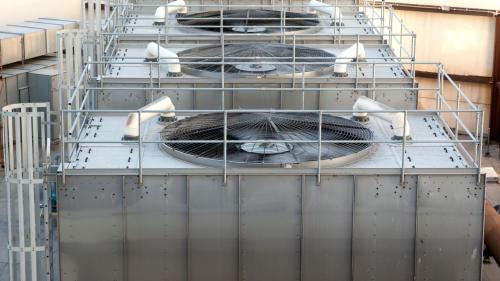The Role of 1.5 Ton AC Units in Sustainable Living

As the world grapples with climate change and environmental degradation, sustainable living has transitioned from a niche interest to a global imperative. One of the critical aspects of sustainable living involves the use of energy-efficient appliances that minimize environmental impact without sacrificing comfort. Air conditioning units, especially the popular 1.5 ton models, play a significant role in this balance. This article explores how consumers can integrate these AC units into a sustainable lifestyle, highlighting energy-saving strategies and the importance of selecting eco-friendly models.
Understanding 1.5 Ton AC Units
A 1.5 ton air conditioning unit is designed to cool medium-sized spaces efficiently. It is one of the most common AC sizes for residential use, ideal for rooms between 150 to 250 square feet. The term "1.5 ton" refers to the unit's ability to cool 18,000 BTUs (British Thermal Units) per hour. This size strikes a balance between efficiency and comfort, making it a preferred choice for households aiming for sustainability.
Selecting Eco-Friendly Models
The first step towards a sustainable air conditioning solution is selecting eco-friendly models. Here’s what to look for:
- Energy Star Rating: Always choose units with an Energy Star rating. These models meet stringent energy efficiency guidelines set by the U.S. Environmental Protection Agency. They consume less electricity and reduce greenhouse gas emissions.
- SEER Rating: The Seasonal Energy Efficiency Ratio (SEER) is a critical factor when choosing an AC unit. A higher SEER rating means greater efficiency. For sustainable models, look for a SEER rating of 15 or above.
- Refrigerants: Opt for air conditioners that use eco-friendly refrigerants like R-32 or R-410A, which have a lower global warming potential than older refrigerants like R-22.
- Inverter Technology: AC units equipped with inverter technology adjust the compressor speed to the room's needs, reducing energy consumption and enhancing overall efficiency.
Energy-Saving Strategies
Integrating a 1.5 ton AC unit into a sustainable lifestyle involves more than just purchasing an energy-efficient model. The following strategies can further enhance sustainability:
- Proper Installation: Ensure that your AC unit is correctly installed to avoid leaks and inefficiencies. Incorrect installation can increase energy consumption by up to 30%.
- Thermostat Settings: Optimize your thermostat settings. Setting your AC to 78°F (26°C) when you are home and increasing it when you are away can reduce your electricity use significantly.
- Use of Timers and Smart Controllers: Timers and smart thermostats can help manage your cooling needs effectively, ensuring that your AC only runs when necessary and at optimal settings.
- Regular Maintenance: Regular maintenance, including cleaning or replacing filters every three months and checking for leaks and duct inefficiencies, can improve performance and extend the life of your unit.
- Complementary Cooling Strategies: Enhance your AC's effectiveness by incorporating other cooling strategies like reflective window coatings, insulation, strategic shading with trees or awnings, and using energy-efficient lighting that emits less heat.
The Broader Impact of Eco-Friendly Air Conditioning
Choosing a 1.5 ton AC unit that aligns with sustainable practices has broader environmental and economic impacts:
- Reduced Carbon Footprint: By consuming less power, energy-efficient air conditioners reduce the carbon footprint associated with electricity production, especially in regions reliant on fossil fuels for power generation.
- Lower Energy Bills: Energy-efficient AC units, although potentially more expensive upfront, lead to significant savings in energy bills over time, making them economically advantageous.
- Supporting Green Technology: Investing in green appliances encourages manufacturers to continue improving the environmental performance of their products, driving broader changes in the industry.
Conclusion
Incorporating a 1.5 ton AC unit into a sustainable lifestyle involves careful selection of energy-efficient models and adoption of energy-saving practices. By prioritizing eco-friendly features and operational efficiency, consumers can enjoy the dual benefits of environmental responsibility and economic savings. As the demand for sustainable products grows, the air conditioning industry is poised to play a pivotal role in the global shift towards environmental stewardship and sustainable living.
Advertise on APSense
This advertising space is available.
Post Your Ad Here
Post Your Ad Here
Comments